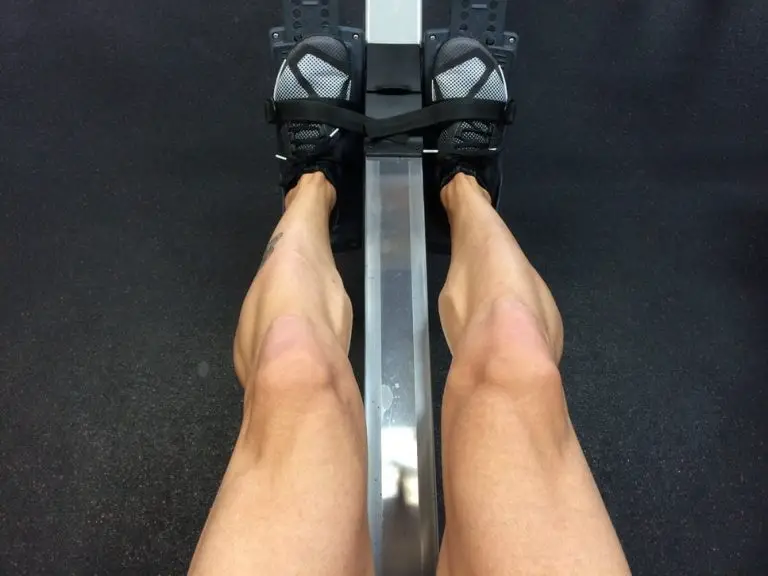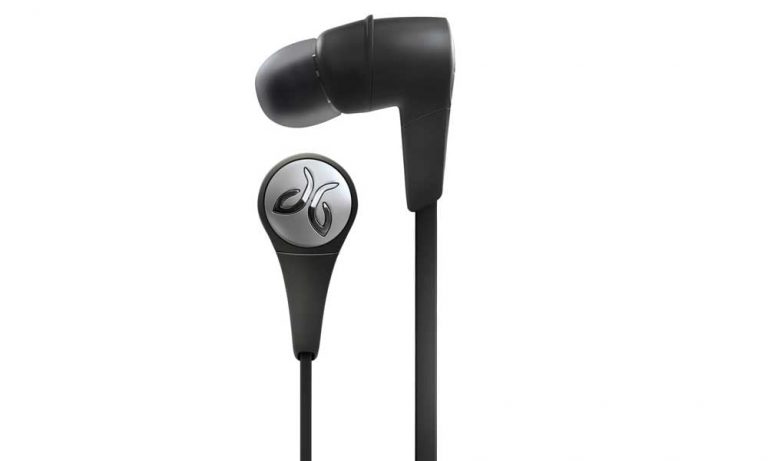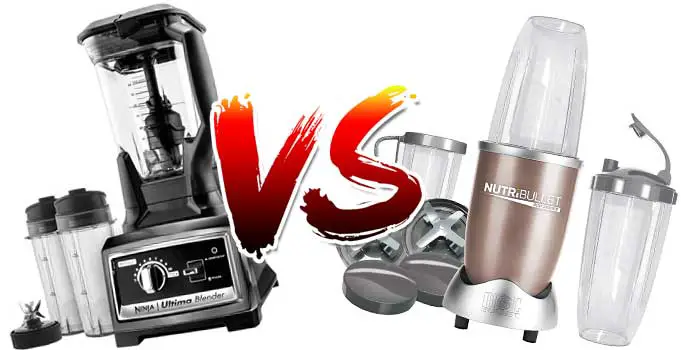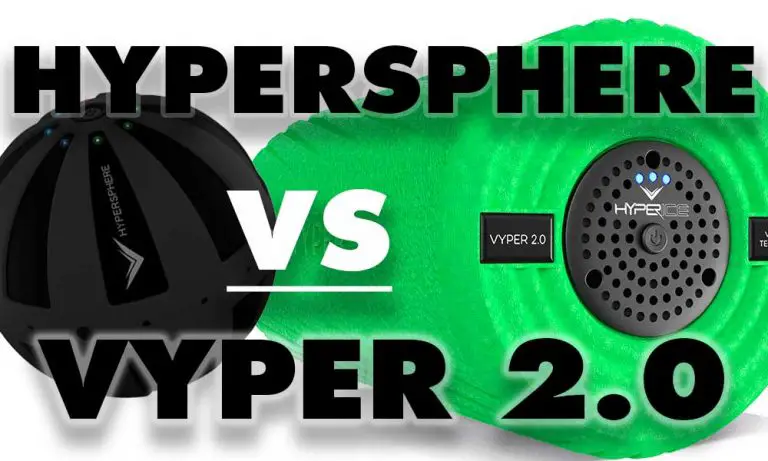Should I Get a Weighted Blanket? Your Quick Guide

ListedFit is reader-supported. When you buy through links on our site, we may earn a small commission.
Weighted blankets have grown in popularity for their potential benefits in managing symptoms of stress, anxiety, and sleep disorders.
These blankets, also known as gravity blankets, are designed to provide gentle pressure on your body while you sleep or lounge, replicating the soothing sensation of a hug.
Mental health professionals have utilized this form of pressure therapy for years, with some research suggesting that weighted blankets may also benefit individuals with autism or insomnia.
Quick Summary
In considering whether to purchase a weighted blanket, it’s important to understand how to choose the right one for your needs. A key factor to consider is the weight of the blanket.
As a rule of thumb, it should be around 10% of your body weight, with ideal weights varying between 5% and 12% of the sleeper’s weight.
Personal preferences and comfort levels should always be taken into account when selecting the appropriate weighted blanket for you.
Key Takeaways
- Weighted blankets may offer stress relief and improved sleep for some individuals
- Choosing the right weight is essential for optimal benefits and comfort
- Consider your personal preferences and comfort when selecting a weighted blanket
Table of Contents
Understanding Weighted Blankets

What Are Weighted Blankets?
Weighted blankets are thick, heavy blankets designed to provide a calming and soothing effect. Often used by people with autism, ADHD or anxiety, these blankets can help improve sleep quality and relieve stress. They typically range in weight, with options available for both children and adults. Adult blankets usually weigh between 12 and 20 pounds, with the ideal weight being roughly 10% of the user’s body weight.
How Do They Work?
Weighted blankets work by creating gentle pressure on the body, which has been found to release mood-boosting hormones and increase serotonin levels. This pressure, known as deep touch pressure (DTP), simulates the feeling of being hugged, swaddled or held, resulting in a calming effect. When selecting a weighted blanket, consider your body weight and personal preferences as ideal weights can vary between 5% and 12% of the user’s body weight. Remember, it’s essential to find the right fit for you to ensure the most comfortable experience.
Why Use a Weighted Blanket?
Promotes Better Sleep
Weighted blankets use deep pressure stimulation, which is thought to stimulate the production of serotonin, a mood-boosting hormone. They also help reduce cortisol levels, a stress hormone, and increase melatonin, the hormone that helps you sleep. By doing so, they may improve your overall sleep quality. A good night’s sleep is essential for maintaining proper physical and mental health, so using a weighted blanket can be quite beneficial for catching those much-needed Zzz’s.
Helps with Anxiety and Stress
If you struggle with anxiety or stress, a weighted blanket might provide some relief. Many people have reported a decrease in anxiety levels and a noticeable increase in their sense of calm when using a weighted blanket. The gentle pressure applied by the blanket mimics the feeling of being hugged or swaddled, creating a soothing environment that can help alleviate anxiety and stress symptoms.
Improves Focus for ADHD
Weighted blankets can also be helpful for individuals with ADHD (Attention Deficit Hyperactivity Disorder). The deep pressure stimulation provided by the blanket helps calm the nervous system, which may improve focus and attention for those dealing with ADHD. By creating a more relaxed and focused state of mind, a weighted blanket could potentially enhance productivity and performance at work or school for people with ADHD.
Can a Weighted Blanket Make You Sore?
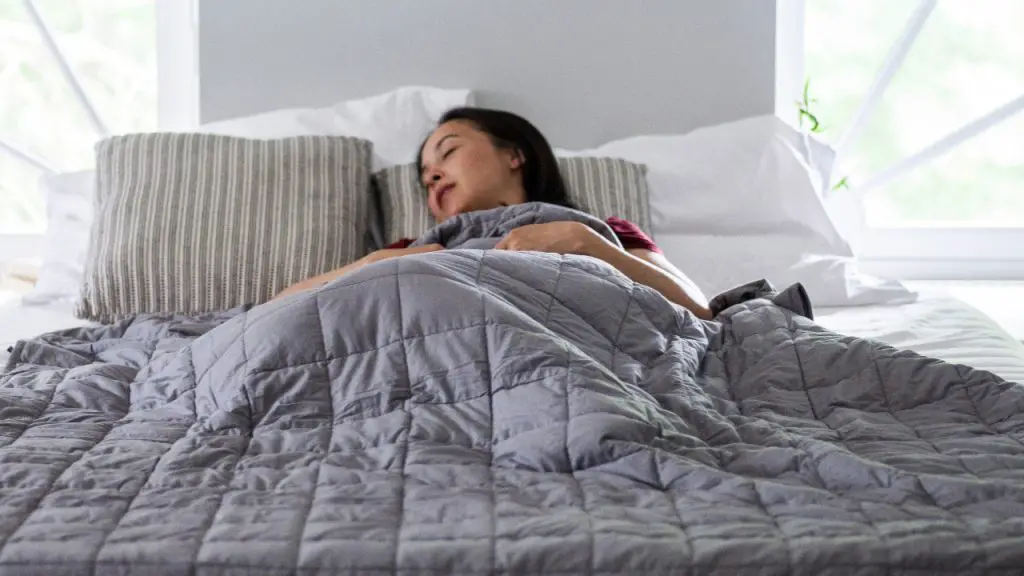
When it comes to weighted blankets, you might wonder if they have the potential to cause soreness or discomfort. In general, weighted blankets should not make you sore, as they are designed to provide a gentle, deep pressure stimulation that helps with relaxation and sleep. However, individual experiences may vary and there are a few factors to consider.
Firstly, it’s essential to choose the appropriate weight for your body size. Typically, a weighted blanket should be around 10% of your body weight, but you might adjust according to your personal preference and comfort. Don’t opt for a much heavier blanket than recommended, as it might lead to soreness or discomfort.
Weighted blankets shouldn’t generally make you sore, it’s essential to choose the right weight, ensure proper weight distribution, and consider any pre-existing conditions that might impact your comfort.
Another crucial aspect is the proper distribution of weight across your body. High-quality weighted blankets usually have small pockets filled with evenly distributed weights to ensure the pressure is applied consistently. An uneven weight distribution may cause discomfort or soreness after prolonged use.
It’s also important to take note of any pre-existing conditions or injuries. If you have issues with your joints, back, or muscles, be cautious while using a weighted blanket. Observe how your body responds to the added weight and consult a healthcare professional if you experience any discomfort or worsening of your condition.
Do Weighted Blankets Help with Muscle Recovery?
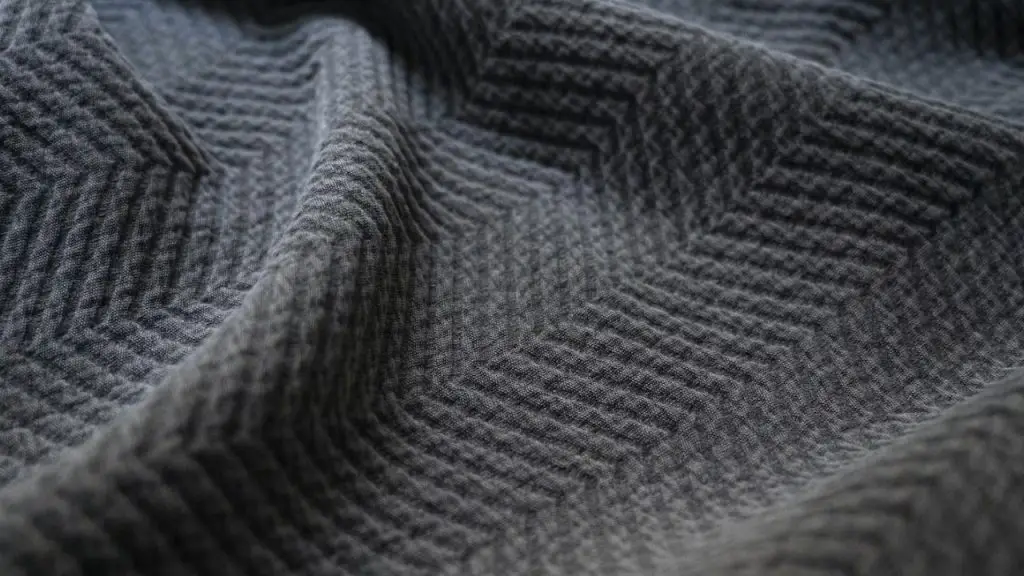
Weighted blankets are often touted for their ability to improve sleep quality and reduce anxiety, but can they also help with muscle recovery? The idea comes from the fact that compression is a commonly used tool for injuries, like the well-known RICE method (Rest, Ice, Compression, Elevation). A weighted blanket essentially adds mass to your body, creating a sensation that can feel similar to compression.
So, can this compression-like sensation from a weighted blanket aid in muscle recovery? It could potentially help alleviate swelling and inflammation after a workout. Additionally, one of the major benefits of using a weighted blanket is that it might help improve your sleep, which is crucial for muscle recovery.
Weighted blankets might offer some benefits for alleviating muscle soreness and inflammation, but it’s the better-quality sleep they promote that plays a significant role in muscle recovery. Just remember, a weighted blanket should complement, not replace, other proven recovery methods.
However, it’s important to note that the evidence supporting weighted blankets for muscle recovery is limited. While many people find them helpful and soothing, it’s best to consider them as an added bonus to your recovery routine rather than a primary solution.
When considering a weighted blanket for muscle recovery, you should evaluate its weight, materials, and your personal preferences. Choose one that allows you to feel comfortable, not overly hot or restricted. When your muscles are sore and fatigued, having a comfortable and cozy option to aid in your rest can be a great support.
Can Weighted Blankets Cause Back Pain?

Weighted blankets have gained popularity as a potential solution for reducing anxiety, insomnia, and stress. But what about the question of whether they can cause back pain? In some cases, they can indeed lead to discomfort or pain in your back or hips.
The mechanism behind the calming effects of weighted blankets is pressure therapy. This gentle yet firm pressure is believed to stimulate your body’s production of serotonin, which in turn helps to regulate your mood. However, it’s important to remember that everyone’s body is unique, and what might work for one person might not work for another.
It’s essential to choose a weighted blanket that suits your body weight and size. A general guideline suggests that a weighted blanket should be about 10% of your body weight. Nonetheless, it’s not a one-size-fits-all solution, and different people may need different weights to feel comfortable and supported.
When using a weighted blanket, you should monitor your body’s response to the added pressure. If you begin to experience any discomfort or pain in your back or hips, it might be a sign that the weight of the blanket is too heavy for you or that it’s not being distributed evenly across your body. In these cases, it’s wise to reconsider using the weighted blanket and seek alternative methods to achieve relaxation and promote better sleep.
While many people find weighted blankets to be a helpful tool for reducing stress and improving sleep, they can cause back or hip pain for some individuals. It’s important to listen to your body, choose the right weight, and seek alternative options if you experience discomfort or pain while using a weighted blanket.
Weighted Blankets: My Top 3 Recommended
Weighted blankets offer numerous benefits and are designed to alleviate stress, anxiety, and improve sleep quality.
Here are three top-notch options that are worth looking at.
1. Topcee Weighted Blanket: This 20lb blanket is an excellent all-season option. It’s made with cooling, breathable, heavy microfiber material. You can expect cosy thickness mixed with relaxing comfort. Glass beads make up the filling within the blanket, ensuring an even weight distribution.
The Topcee Weighted Blanket can be found here on Amazon.
2. CYMULA Weighted Blanket for Adults: Specifically designed for those weighing between 140 to 180 pounds, this 15lb dark grey blanket is another useful option. The CYMULA Weighted Blanket for Adults features cooling properties, making it ideal for warm nights.
Get yours from Amazon.
3. BETU Weighted Blanket: Last but not least, the BETU Weighted Blanket is a fantastic choice when searching for high-quality, comfortable, and supportive blankets. While details on weight and dimensions are not provided in the background information, it is worth checking out on Amazon for further specifications.
Remember to choose a weighted blanket that is about 10% of your body weight for optimal comfort and benefits. With these recommendations, you’ll be able to find the perfect weighted blanket to suit your needs.
How Heavy of a Weighted Blanket Should I Get
Weight Recommendations
When choosing a weighted blanket, it’s important to consider the appropriate weight for your needs. Generally, a weighted blanket should weigh around 10% of your body weight, plus an extra one or two pounds if you fall between recommended weights. This ensures that the blanket provides the right amount of pressure without being too heavy or restricting movement.
For example, if you weigh 150 pounds, your ideal weighted blanket weight would be around 15 to 17 pounds. However, you should also consider your personal comfort and preferences. If you find a blanket within that weight range too heavy or uncomfortable, feel free to move up or down in weight until you find what works best for you.
Material and Filling Types
Another factor to consider when selecting a weighted blanket is the type of material and filling used. Common materials for weighted blankets include cotton, microfiber, and bamboo, with each offering different levels of softness, breathability, and durability.
Weighted blankets also come in different fillings, such as plastic poly pellets, glass beads, and metal chains. Each type of filling offers a unique texture and weight distribution. Plastic poly pellets are the most common and tend to create a more noticeable weight. Glass beads, on the other hand, are smaller and denser, providing a more evenly distributed weight. Metal chains offer a different sensation and can be quite comfortable for some users.
When choosing a weighted blanket, consider your personal preferences for material and filling. Additionally, be sure to pay attention to the care instructions for each type to ensure you’re able to properly maintain your chosen blanket.
Weighted Blanket Pros and Cons
Let’s dive into the pros and cons of weighted blankets to help you make a well-informed decision on whether or not they’re right for you.
Pros:
- Ease anxiety: Weighted blankets provide a drug-free option for coping with anxiety. The gentle pressure they apply to your body may help you feel more calm and relaxed.
- Promote better sleep: Using a weighted blanket might make it easier for you to fall asleep, experience better sleep quality, and wake up feeling more refreshed.
- Alleviate depression symptoms: The pressure from the blankets may contribute to the release of feel-good brain chemicals like serotonin and dopamine, possibly relieving depression symptoms.
Cons:
- Heat retention: Conventional weighted blankets might cause you to feel too warm during sleep, which can disrupt your overall comfort and rest.
- Eco-friendliness: Some weighted blankets aren’t especially eco-friendly, so if you’re looking for a sustainable option, you may need to do some research before purchasing one.
- Higher cost: Compared to standard blankets, weighted ones can be quite a bit pricier. Keep in mind that they do come with various benefits that may justify the extra expense.
In summary, weighted blankets can bring numerous benefits, such as reducing anxiety, improving sleep, and helping with depression. However, potential issues like heat retention, eco-friendliness, and a higher price tag are important factors to consider before making a purchase.
Frequently Asked Questions
Are weighted blankets helpful for anxiety?
Yes, weighted blankets can be helpful for anxiety. They’re often used as a form of pressure therapy, which can help alleviate anxiety and provide a sense of calm.
However, it’s important to remember that what works for one person might not work for another, so give it a try and see if it helps you.
Can kids benefit from using a weighted blanket?
Children can benefit from using a weighted blanket, especially if they struggle with anxiety or sensory processing difficulties.
When selecting a weighted blanket for a child, make sure to choose the appropriate size and weight to ensure it’s safe and effective.
What are potential side effects of a weighted blanket?
While most people enjoy the benefits of weighted blankets, some individuals might experience discomfort, such as feeling trapped or claustrophobic.
If this occurs, stop using the blanket and consult a healthcare professional.
Do weighted blankets make you feel hot?
Some weighted blankets may make you feel warm, particularly if they’re made from heavier or less breathable materials.
However, there are options with cooling features, like the Degrees of Comfort Cooling Weighted Blanket, which are designed for those who tend to sleep hot.
Can weighted blankets improve sleep quality?
Weighted blankets can help improve sleep quality for some individuals by providing a sense of safety and security.
The added pressure can stimulate the release of serotonin, a hormone that helps regulate sleep.
As always, individual experiences may vary, but it’s worth trying to see if a weighted blanket improves your sleep.
How do I use a weighted blanket properly?
To use a weighted blanket properly, lay it evenly across your bed or drape it over your body while you sleep.
Make sure not to cover your head with the blanket, as this could cause overheating or difficulty breathing. Use the blanket consistently each night to reap its full benefits.
Author
- Danny Loeb is a qualified Personal Trainer, Fitness Model and Writer. He enjoys blogging about health and fitness, messing around with Photoshop, and sharing his experiences with everyone.
Latest entries
 NutritionFebruary 6, 2024What Are Fillers in Supplements? – Unveiling Inactive Ingredients
NutritionFebruary 6, 2024What Are Fillers in Supplements? – Unveiling Inactive Ingredients FitnessAugust 23, 2023Best Post-Workout Foods: Great Ideas for Recovery and Results
FitnessAugust 23, 2023Best Post-Workout Foods: Great Ideas for Recovery and Results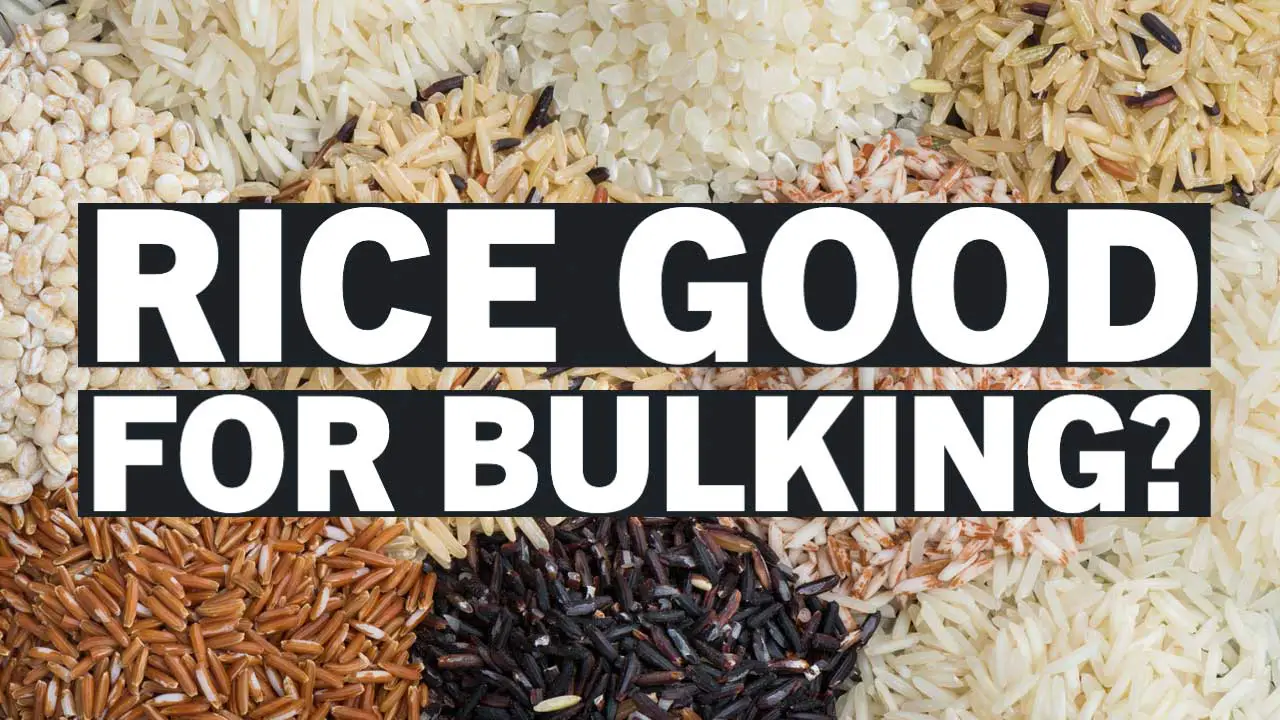 BulkingJuly 26, 2023Is Rice Good for Bulking? Unveiling the Truth
BulkingJuly 26, 2023Is Rice Good for Bulking? Unveiling the Truth CultureJuly 15, 2023Why Do People Hate Planet Fitness? Read This Before You Join!
CultureJuly 15, 2023Why Do People Hate Planet Fitness? Read This Before You Join!
Affiliates:
This post may contain affiliate links that at no additional cost to you, the site may earn a small commission. We only recommend products we would use ourselves and all opinions expressed on this site are our own.
General Advice:
The information provided in this article is for general informational purposes only. It is not intended as a substitute for professional advice. Always consult with a qualified healthcare professional before starting any new diet, exercise program, or making changes to your health routine.
Accuracy Advice:
While we strive to provide up-to-date and accurate information, the content in this article may not reflect the most current research or medical guidelines. We encourage readers to do further research and consult with professionals for more personalized advice.
Our Recommendations:
The products and services mentioned in any of our articles are recommended based on our independent research and personal experience. We are not sponsored by any company. We aim to suggest products and services we believe are of high quality and could be beneficial to our readers.

